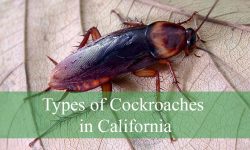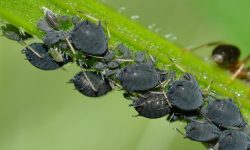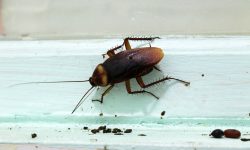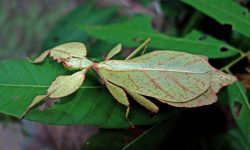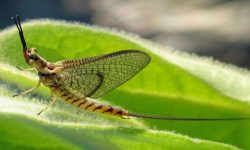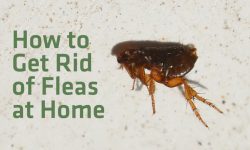Chipmunks are adorable little creatures, but when they invade your garden, yard, or home, they can quickly become a nuisance. These small rodents are known for raiding bird feeders, digging up gardens, and causing general chaos in your outdoor space. While there are various ways to control chipmunks, the most humane and natural methods are often the best way to handle the situation.
If you’re looking for eco-friendly and effective solutions, here are 20 tips on how to get rid of chipmunks naturally without harm.
What Are Chipmunks?
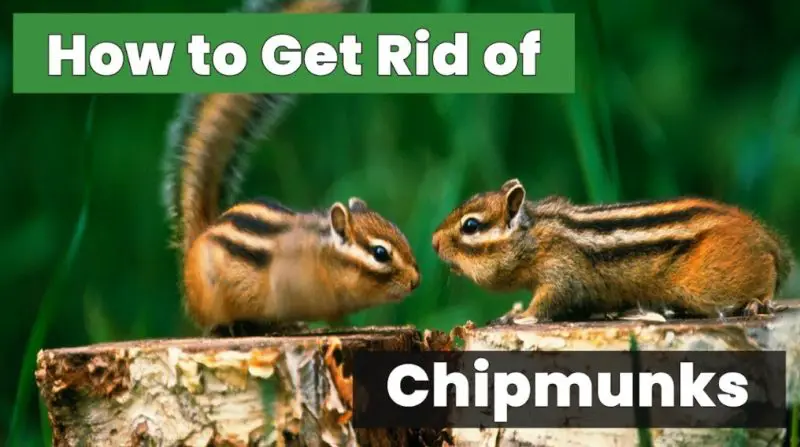
Chipmunks are small, striped rodents belonging to the squirrel family. They are usually between 8 to 11 inches long and are characterized by their distinctive stripes running down their backs. While they are cute to watch, they can be a significant problem if they take up residence in your garden or near your home.
Signs of a Chipmunk Infestation
- Seeing chipmunks running around your yard or garden.
- Finding food caches (nuts, seeds) stored in odd places.
- Signs of damage to plants, flowers, and garden beds.
- Chipmunks frequently raiding bird feeders.
If you’re noticing these signs, it’s time to take action. Fortunately, there are several humane, natural ways to keep chipmunks away.
1. Cayenne Pepper Spray
Cayenne pepper is a hot and spicy ingredient that chipmunks find unbearable. By making a cayenne pepper spray, you can deter chipmunks from entering your garden. Simply mix 1 tablespoon of cayenne pepper with 1 cup of water and spray it around areas where chipmunks are active. Be cautious, as the pepper can irritate the skin, so wear gloves during application.
2. Plant Repellent Plants
Certain plants naturally repel chipmunks. By adding these to your garden, you can discourage them from setting up shop.
- Daffodils: These colorful flowers are not only beautiful but also known to repel chipmunks.
- Garlic: The strong smell of garlic is unpleasant to chipmunks, and it grows easily in most gardens.
- Marigolds: Their strong scent keeps chipmunks away, while also repelling other pests.
3. Clean Up Your Garden
Keeping your garden clean and free of food debris is essential in discouraging chipmunks. Regularly remove fallen fruit, nuts, and other food sources that might attract them. Also, clear away old wood piles, rocks, and leaves where chipmunks might nest.
4. Use Human Hair Clippings
While this might sound strange, the scent of human hair can deter chipmunks. Gather hair clippings from your home or local salon and sprinkle them around your garden and yard. The smell of human hair is unpleasant to chipmunks, causing them to move elsewhere.
5. Install Ultrasonic Devices
Ultrasonic devices emit a high-frequency sound that is inaudible to humans but disturbing to rodents. These devices can help to drive chipmunks away from your yard. While they are not a permanent solution, they can be a good deterrent in the short term.
6. Set Up a Bucket Trap
A humane way to trap chipmunks is to use a bucket trap. Place a bucket on the ground with nuts or sunflower seeds inside. Use a stick with a fishing line to hold the bucket upright. When the chipmunk tries to reach the food, pull the line, causing the bucket to fall and trap the chipmunk inside. Release the chipmunk far away from your home.
7. Use Epsom Salt Solution
Mix 1 teaspoon of Lysol, 3 ounces of Epsom salt, and a gallon of water in a spray bottle. Spray this solution around your yard, garage, or walls where chipmunks frequent. The strong scent and taste will discourage them from sticking around.
8. Install a Fence Barrier
Installing a fence barrier is one of the best ways to keep chipmunks out of your garden. You don’t need a high, elaborate fence; just make sure it’s tall enough to prevent chipmunks from squeezing through. A well-placed barrier will also keep other pests, such as rabbits and squirrels, away.
9. Use Essential Oils
Essential oils such as peppermint, eucalyptus, and citrus are known to repel chipmunks. Mix 2 tablespoons of essential oil with 1 cup of water and spray it around areas where chipmunks are active. The strong scent will make them avoid your property.
10. Secure Bird and Pet Food
Chipmunks are notorious for raiding bird feeders and pet food. Make sure to use covered feeders and place food out of reach to prevent chipmunks from accessing it. Sprinkling cayenne pepper around food storage areas can also help to keep them at bay.
11. Attract Natural Predators
Chipmunks have several natural predators, including hawks, owls, and cats. By making your yard hospitable to these predators, you can naturally control the chipmunk population. Provide shelter for birds of prey and allow cats to roam in your yard.
12. Provide Food Away From Your Property
If you’re determined to keep chipmunks away without harming them, try providing them with a food source away from your property. Set up a feeding station with seeds or nuts in a location far from your home, and the chipmunks are likely to prefer it over your garden.
13. Cinnamon
Cinnamon is another ingredient that chipmunks dislike. Sprinkle cinnamon powder around your vegetable garden, flower beds, or other chipmunk-prone areas. If you run out of cinnamon, used coffee grounds can be an effective alternative.
14. Use Vinegar
The strong smell of vinegar, especially apple cider vinegar, is unpleasant to chipmunks. Fill a spray bottle with vinegar and apply it to areas where chipmunks are active. This natural deterrent is cheap and effective.
15. Seal Cracks and Crevices
Prevent chipmunks from entering your home by sealing cracks and crevices in the exterior. Use silicone or caulk to fill gaps around windows, doors, and the foundation. A metal barrier around the base of your house can also prevent chipmunks from climbing up.
16. Use Bobbex-R Animal Repellent
Bobbex-R is a natural, eco-friendly animal repellent that works well against chipmunks and other pests. It is made with ingredients that create an unpleasant odor for chipmunks and will help keep them away from your property. Bobbex-R is safe to use around plants and is non-toxic.
17. Try Bonide Chipmunk Repellent
Bonide Chipmunk Repellent is another safe, botanical-based repellent that works well in gardens and yards. It uses natural oils to repel chipmunks and is non-toxic, making it safe to use around pets and children.
18. Create an Unfriendly Habitat
Chipmunks are creatures that prefer thick brush and wooded areas. To make your property less inviting, trim back bushes, and remove excess brush or vegetation around your home. This will reduce the number of places where chipmunks can nest.
19. Place Rock or Gravel Barriers
Chipmunks don’t like to dig in hard, rocky surfaces. By creating a rock or gravel barrier around your garden or yard, you can discourage chipmunks from burrowing. This natural deterrent can be both practical and aesthetically pleasing.
20. Regularly Inspect Your Property
Consistently inspect your property for signs of chipmunk activity. Keep an eye out for burrows, droppings, and chewed vegetation. By catching an infestation early, you can prevent the problem from getting out of hand.
Conclusion
Chipmunks can be a persistent problem, but with these 20 natural methods, you can keep them away from your home and garden without causing them harm. Whether you choose to use natural repellents, attract predators, or create an unwelcoming habitat, these humane solutions can help you restore peace to your outdoor space. By implementing a combination of these tips, you’ll be able to deter chipmunks and enjoy a chipmunk-free environment.

